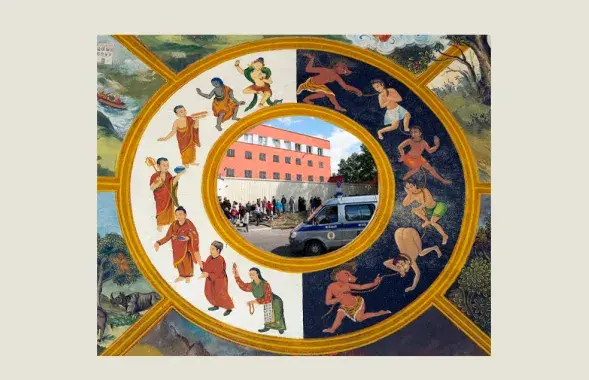Will Belarus cut 8 percent of jobs?
Economy Minister Mikalay Zaychanka is concerned that the wage growth exceeds the labor productivity in this country. In his view, the problem could be resolved by cutting “unnecessary” jobs at industrial enterprises. But this would be inconsistent with the social policy boasted about by the president.
The European Radio for Belarus has approached several economists to elucidate on this situation. Is there a problem of overemployment at the Belarusian enterprises, indeed?
Economist Leanid Zaika believes that workers at large enterprises could be fired as the whole departments.
“There is a problem, indeed. It exists at absolutely all the enterprises, especially state-owned. You can enter any factory (MAZ, BelAZ) or any state-run shop and see a huge number of people idling around, getting high salaries and interfering with each other.
Some large enterprises have the whole departments of unnecessary workers,” Zaika says.
At the same time, Leanid Zaika notes that the talk has been there for a long time, but they are unlikely to end up with real actions.
“The president fears unemployment. If these measures take place indeed, the unemployment rate would jump by 7-8 percent. This is very real. If we are to remove all the unnecessary labor force, the unemployment rate would reach 12 percent,” Zaika maintains.
According to the official statistics, Belarus’s unemployment rate presently hovers around just 1 percent.
Alexander Chubryk, an economist with the Institute of Privatization and Management, believes that the problem of productivity can’t be resolved by just axing the jobs.
“As far as I know, the National Bank did some market polls which said that 7-8 percent of workers at large enterprises were unnecessary.
However, I don’t like (economy minister) Zaychanka’s proposal. Laying-off as such doesn’t improve the quality of management. It doesn’t mean that by firing workers, an enterprise can automatically become a highly-profitable operation,” Chubryk says.
The economist is confident that enterprises should be allowed to make their own decision-making as regards employing or dismissing their workers. He also recalls that back in 2002 the government acted to cut jobs because enterprises were unable to pay salaries.
“2002 was the year after the presidential elections. 2007 was the year after the presidential elections, too. The difference is that 2002 was a more difficult year from the point of view of the external situation. This year, the situation is quite conducive for Belarus, if we don’t take into account the new price for gas,” Chubryk says.
In his words, the policy of cutting jobs did not yield a serious economic effect five years ago. The social affects were on the opposite negative.
“Back at that time, both the official and unofficial unemployment was growing. In spite of the economic growth, registered at that time by the Ministry of Statistics, there was an increase in poverty. That was partially caused by job cuts, because jobless are not treated as a socially protected category," he adds.
The interesting thing is that the major Minsk-based enterprises maintain they don't need to lay off workers. Neither MAZ nor Horizont nor Kamvol have any intention to raise productivity in this way. “We have a different problem. On the opposite, we lack workers,” the European Radio for Belarus was told by the human resources office of the Kamvol factory.
Uladzimir Kazakevich, the chief of the ideology department at the Horizont TV-making giant, has also assured ERB that no job cuts are planned.
“We don’t go this way. On the opposite, we have hired some young professionals this year. We are trying to rejuvenate our staff.
The labor productivity doesn’t depend on the number of workers only. There are many other factors that can be used, including the modern equipment and other things. It’s not like that when you cut jobs, you have an automatic production growth,” Kazakevich said.
At the same time, officials at the Pramen factory in Minsk have confessed: “We are working in this direction. We are cutting jobs”.
Economist Leanid Zlotnikaw explains why this is happening.
“The distribution of jobs in Belarus is very unequal in the regional sense. It is true that there is a general deficit of labor force in Minsk. When we look at the regional centers and smaller towns, the situation is quite different there,” he said.
At any rate, if enterprises eventually start firing workers, it will be the job of the latter to take care of themselves. Alexander Chubryk thinks that promotion of small-size businesses could save the situation, but it is not easy.
“If a contract expires, a worker can simply be fired without any significant compensation package. While a person is employed, he or she can work maybe half a day, getting a minimum salary. At the same time, they don’t do anything…
This is a traditional a la Belarus way to care about workers. But when they become actually jobless, none apart from themselves will have to take care of them”, Zlotnikaw said.



















